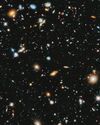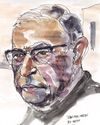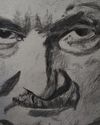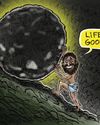
If you’ve ever found yourself staring blankly at a spreadsheet or nursing a lukewarm cup of coffee while daydreaming about your next vacation, this is for you. Yes, you, the one who periodically contemplates existential questions between email exchanges and Zoom meetings. If your work feels like a necessary yet uninspiring pursuit, a means to fund your ‘real life’ outside the office, let us delve together into the philosophical underpinnings of work. Who knows, we might find ways to render the banal a little more bearable, or even meaningful.
Aristotle and the Dignity of Work
Aristotle, one of the most influential philosophers in Western thought, had distinctive views on work. He made a clear distinction between chrematistics (wealth acquisition) and oikonomia (household management). In his view, work performed purely for the sake of livelihood, or chrematistics, was not inherently virtuous; it was simply a means to an end. However, work that contributed to the well-being of the community, or oikonomia, was considered virtuous as it served a higher purpose.
Aristotle asserted that work aimed at wealth accumulation (chrematistics) was a practical necessity of life, but not a noble goal. It was essential to fulfill our basic needs such as food, shelter, and clothing. However, when wealth accumulation became the primary aim, it could lead to an unhealthy focus on materialism, potentially degrading societal values and causing imbalance in life.
この記事は Philosophy Now の February/March 2024 版に掲載されています。
7 日間の Magzter GOLD 無料トライアルを開始して、何千もの厳選されたプレミアム ストーリー、8,500 以上の雑誌や新聞にアクセスしてください。
すでに購読者です ? サインイン
この記事は Philosophy Now の February/March 2024 版に掲載されています。
7 日間の Magzter GOLD 無料トライアルを開始して、何千もの厳選されたプレミアム ストーリー、8,500 以上の雑誌や新聞にアクセスしてください。
すでに購読者です? サインイン

The Two Dennises
Hannah Mortimer observes a close encounter of the same kind.

Heraclitus (c.500 BC)
Harry Keith lets flow a stream of ideas about permanence and change.

Does the Cosmos Have a Purpose?
Raymond Tallis argues intently against universal intention.

Is Driving Fossil-Fuelled Cars Immoral?
Rufus Duits asks when we can justify driving our carbon contributors.

Abelard & Carneades Yes & No
Frank Breslin says 'yes and no' to presenting both sides of an argument.

Frankl & Sartre in Search of Meaning
Georgia Arkell compares logotherapy and atheistic existentialism.

Luce Irigaray
Luce Irigaray, now ninety-two years old, was, among many other things, one of the most impactful feminists of the 1970s liberation movements - before she was marginalised, then ostracised, from the francophone intellectual sphere.

Significance
Ruben David Azevedo tells us why, in a limitless universe, we’re not insignificant.

The Present Is Not All There Is To Happiness
Rob Glacier says don’t just live in the now.

Philosophers Exploring The Good Life
Jim Mepham quests with philosophers to discover what makes a life good.